
By Sharonne Hayes
When Hurricane Helene tore through communities across North Carolina, the devastation left behind wasn’t just physical—it was deeply emotional. Families were displaced, first responders stretched thin, and volunteers faced the dual burden of helping others while coping with their own losses. In the midst of this chaos, one organization stepped forward with a unique kind of support: Highland Canine, a nationally recognized provider of service and therapy dog programs, brought comfort, healing, and hope—one paw at a time.
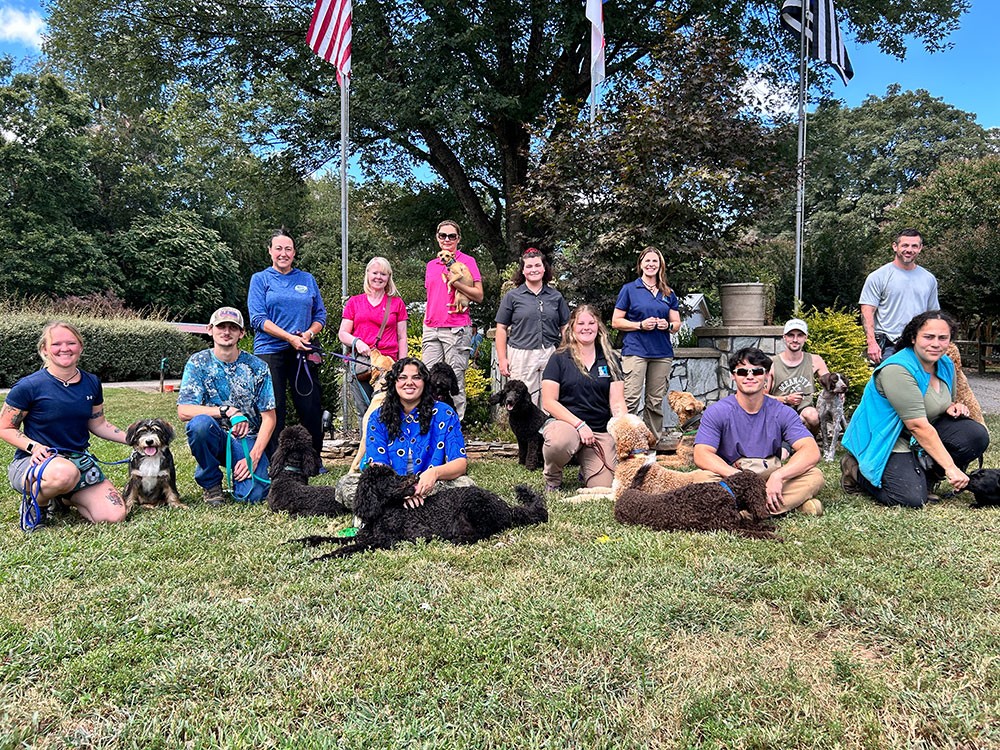
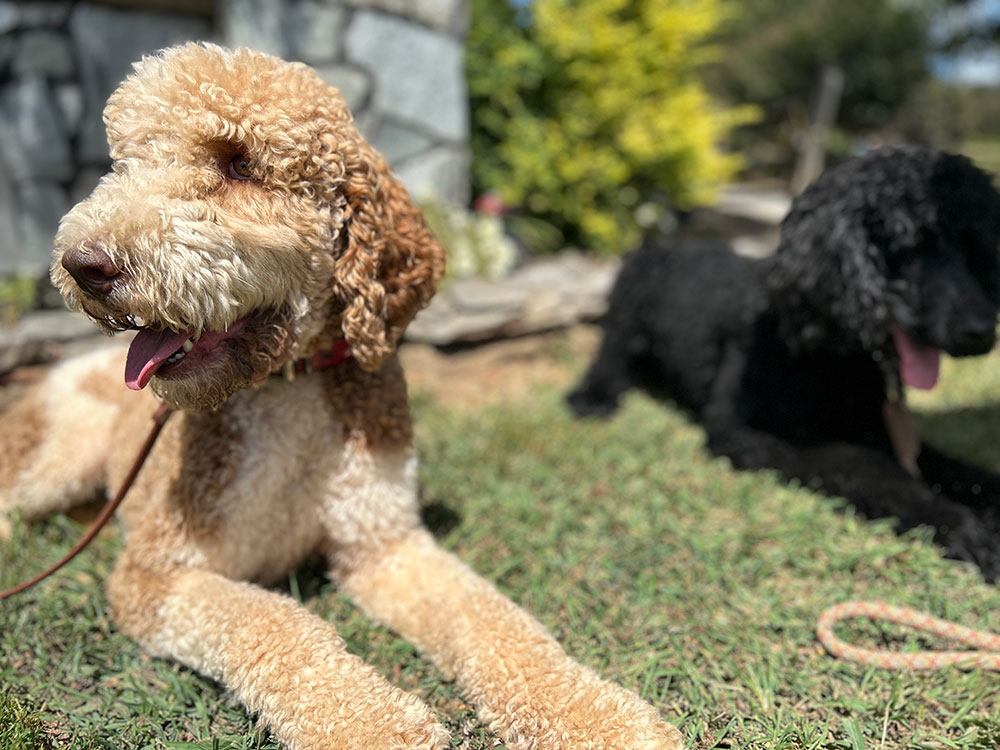
Founded in 2006 by Erin Purgason and her husband, Highland Canine began as a dog training business focused on behavior modification and police dog training. By 2008, they expanded into service and therapy dog programs, and in 2019, launched a nonprofit arm—Highland Canine Connect—to provide outreach and place service dogs with families in need. Their mission is rooted in connection, compassion, and the belief that dogs can transform lives.
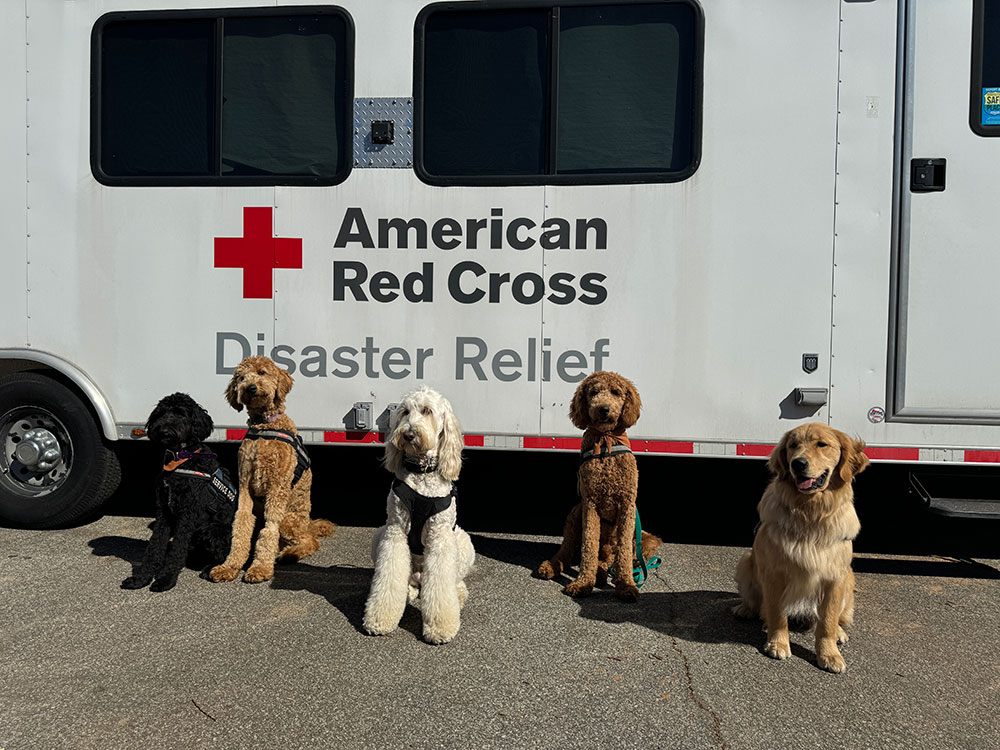
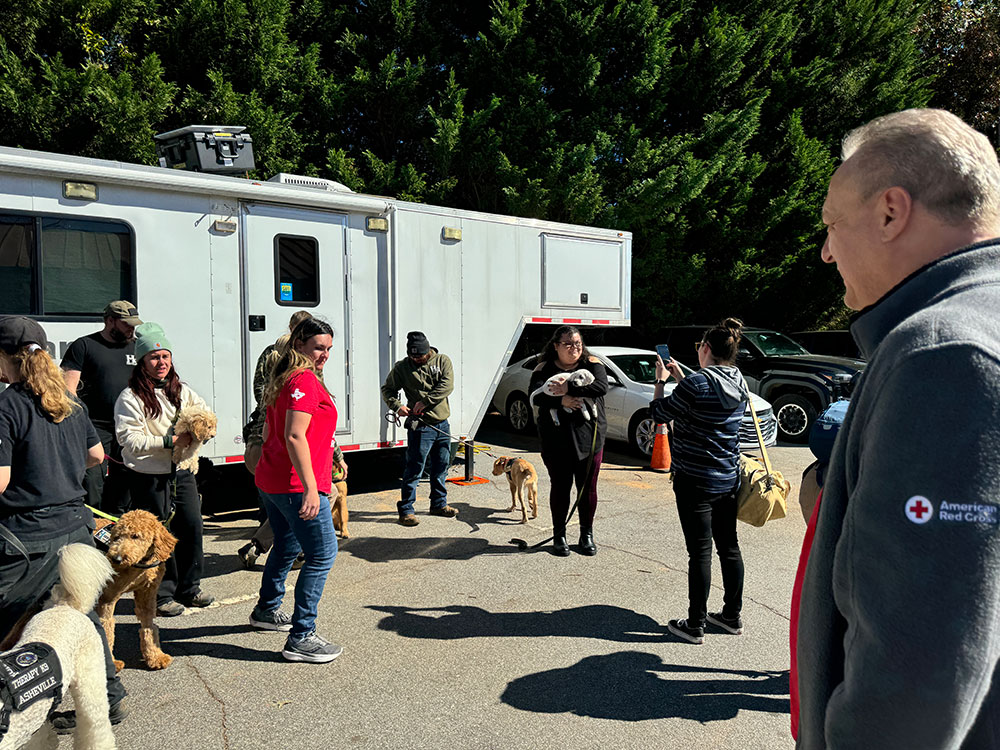
Sharonne Hayes with the American Red Cross North Carolina Region sat down with Erin Purgason, Founder of Highland Canine, to talk about the organization’s emotional support work in the aftermath of Hurricane Helene. Joining Erin were Genasis 'Gigi' Horton, Manager of the Service Dog Department, and Trinity Rigoni, a Service Dog Trainer, who shared what they witnessed in Asheville and how their team used canine companionship to support emotional recovery during a time of crisis.
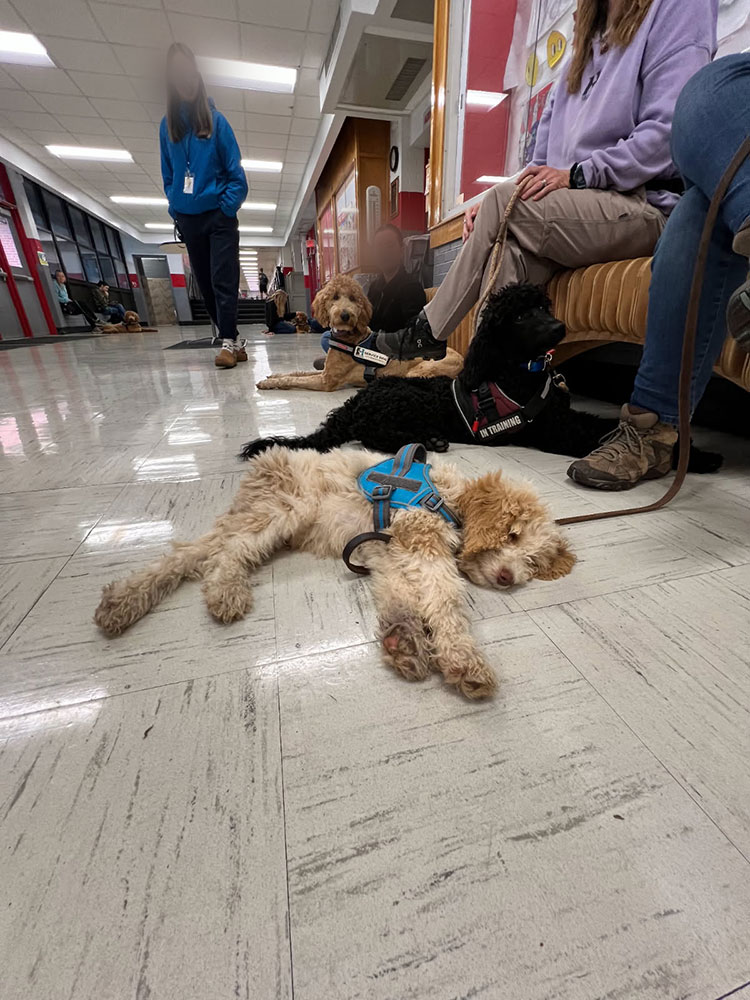
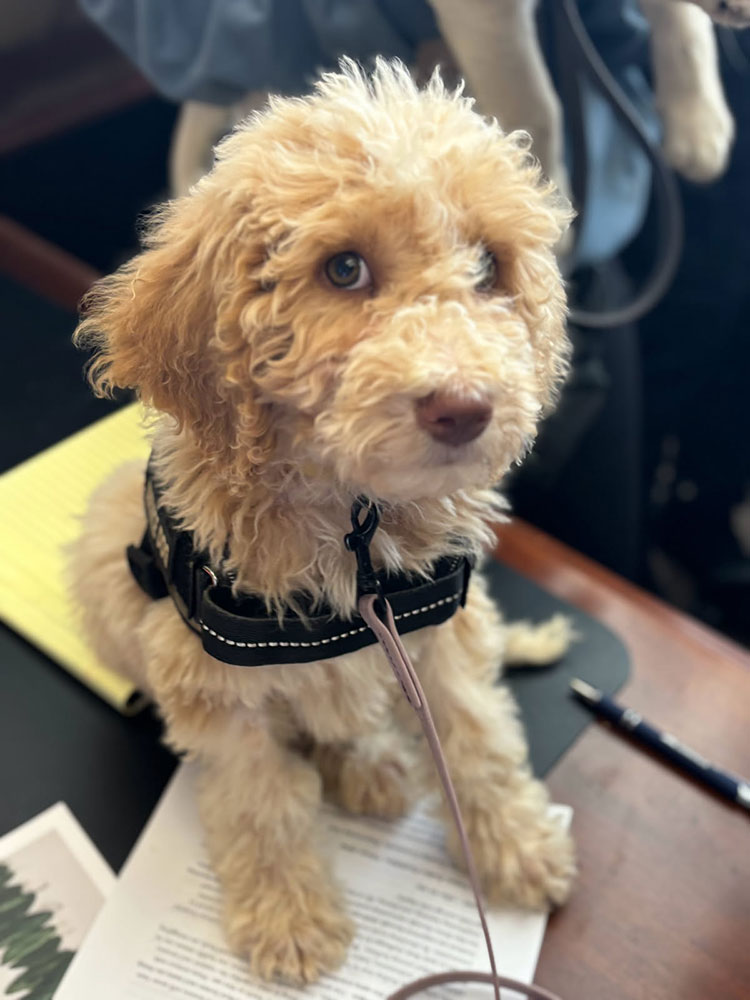
Interview Spotlight: Highland Canine’s Role in Hurricane Helene Recovery
Sharonne Hayes: Erin, for those who aren’t familiar with Highland Canine, tell us about how and why you started such an impactful organization?
Erin Purgason: Sure! My husband and I started Highland Canine in 2006. We began with pet dog training and behavior modification, and because of our law enforcement background, we added police dog training. Around 2008, we expanded into service and therapy dog programs. And in 2019, we launched Highland Canine Connect, our nonprofit, which allows us to run community outreach and place service dogs with families who can’t always afford them.
Sharonne: That’s amazing. What makes these dogs so special—not just in how they help, but in how they lift spirits during times of crisis?
Erin: For many people, the dogs bring a sense of calm. There’s no judgment in their zone, so it helps people relax, open up, and connect. That’s what makes them so powerful in crisis situations.
Sharonne: And the dogs you brought during Helene—can you tell us about them?
Erin: These were some of our ‘babies’ in the program. Boomer is a 7-month-old standard poodle now who hasn’t been assigned yet, and Patch—a Labradoodle—just turned one. He’s already matched with a family in Washington, DC, and will be delivered early next year.
Gigi Horton: I actually have a really cute picture of Patch sitting on a desk at the Asheville Police Department [after we responded to Helene]. He was only about 8 to 10 weeks old when we first brought him in.
Sharonne: But look at him now – a year later and all grown up!
Gigi: Oh, yes! He’s grown up a lot since then and now he’s going to help another family soon.
Erin: [During Helene] we brought in everything from baby puppies to the “OGs”—the older dogs who sit quietly by your side, perform those deep pressure tasks….We had an array of different personalities, too, to match with the people and families we were going to see.
Sharonne: How did you get involved in the overall Helene response?
Erin: I had trained a therapy dog, Cora, with Debbie from the Asheville Police Department years ago. When Helene hit, Debbie called and said, ‘Erin, I really need you guys up here. The community’s had a big loss. Cora can’t do all the work by herself.’ And so, we loaded up vans and headed out. Besides impacted communities, we also visited first responders, fire departments, some of the shelters, and a few schools.
Erin: We even went to City Hall once because we heard the admin team was really needing a break dealing with all the calls and trauma responses and everything else. So, we took the dogs through City Hall and even interrupted their meeting and brought them a little love from the dogs! So, that was pretty cool. It was a special moment. We went anywhere the [Asheville] Police Department felt we were needed in that moment; we were along for the ride.
Sharonne: And make note that these pups were also a HUGE hit when you visited us at our Red Cross office in Asheville. Our volunteers, some of whom were also impacted by Helene and were working around the clock, absolutely loved the morale booster. They were everywhere and it was awesome to see.
Erin: Yes, I heard it was great! I personally did not get to go to that visit because I was at a different location, but our volunteers mentioned lots of hugs, lots of play, and just a good time with volunteers helping volunteers, neighbors helping neighbors. The Red Cross knows the importance and the gratitude that comes with stepping in to help, too. We wanted to make sure to spread some love to every support team we could who was touching the mission during that time.
Sharonne: Tell us about your visits to some of the kids at a few schools in Buncombe County.
Erin: Oh, one of the most impactful moments was at an elementary school just outside of Asheville, in the Swannanoa area. The area had been hit hard. When we pulled up, the kids were ecstatic….But the teachers were so emotional and couldn’t believe we came to their little school. It was beautiful. They just needed a break.
Gigi: We were all in a little hallway where they were giving out water, food, and clothes—everyone was packed in, just loving on the dogs. It was a good time. The kids and the staff really enjoyed it.
Sharonne: And what a special kind of emotional relief and comfort for a community that was facing such a tough moment. I must ask: have you noticed any lingering effects from Helene? Things that you didn’t think about before, but do now?
Erin: Absolutely. I think anytime we get a natural disaster, people are much more hypervigilant now. A little nervous because things can change so fast. Even our local fire and EMS teams were involved in this response, and we’re about an hour and forty-five minutes away. I feel like people will be impacted for a while. Even just seeing the flood lines, the debris – you’re never going to forget that anytime soon.
Sharonne: Lastly, has this changed how you approach disaster response?
Erin: Definitely. We realized one or two dogs just aren’t enough in this situation—it takes a team. Volunteers from all over brought therapy, comfort, and search and rescue dogs. The canine community, as a whole, really leaned in and learned a lot from this response.
For us—the students and staff [at Highland Canine] during that time frame—we felt like we couldn’t help enough. We were way more vigilant about supplies, making sure families’ Christmas would be cheerful, and keeping an eye on our neighbors. When devastation hits your backyard, it’s eye-opening.
Sharonne: But you and the pups certainly had an important role to play, and it shows we all can when the moments counts. What’s your final takeaway out of everything that happened and your response?
Gigi: It’s heartwarming to see how quickly and efficiently people pull together. Even those people, volunteers a few counties away showed up. And REALLY showed up. Volunteers were the first to ask, “What dog can I take? How can I help?” It restores your faith in humanity. It’s beautiful.
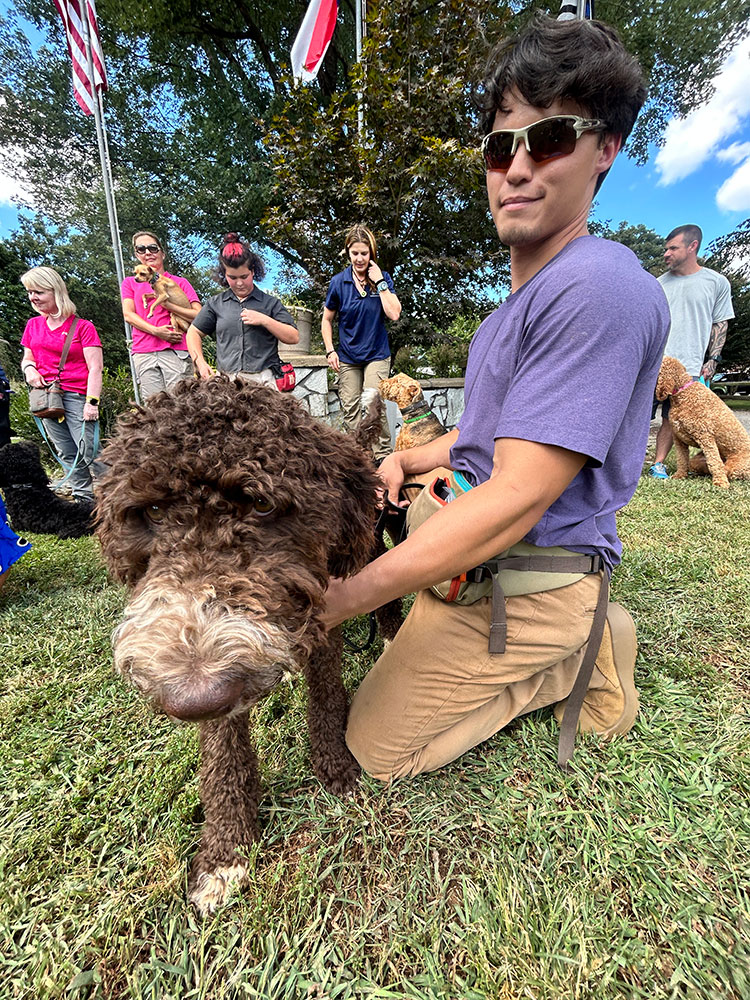
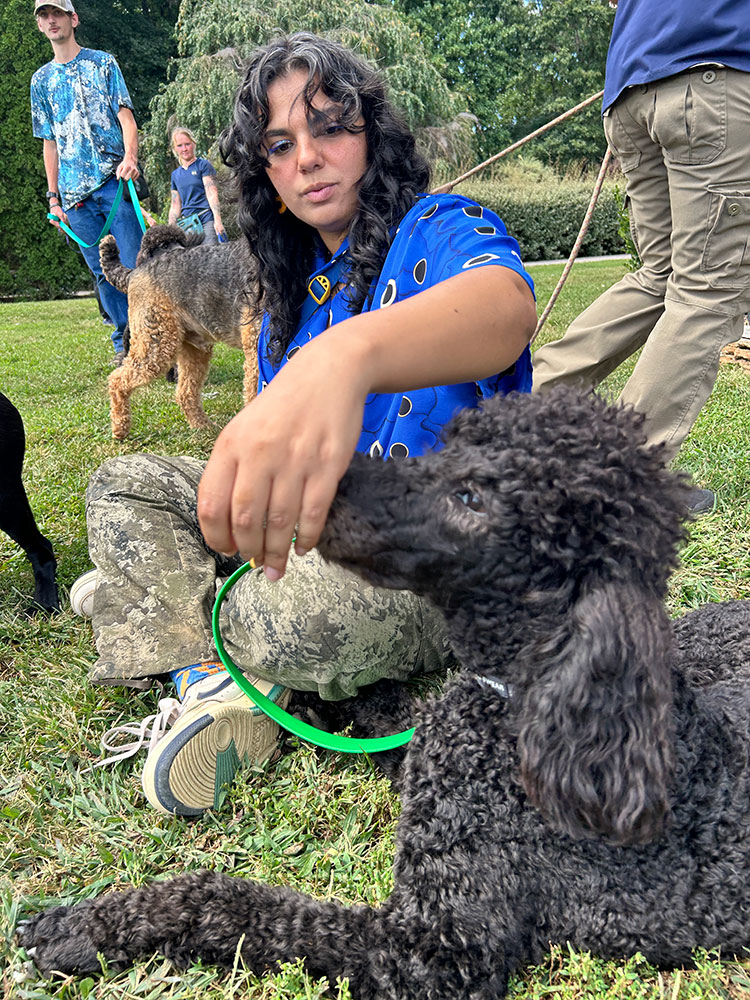
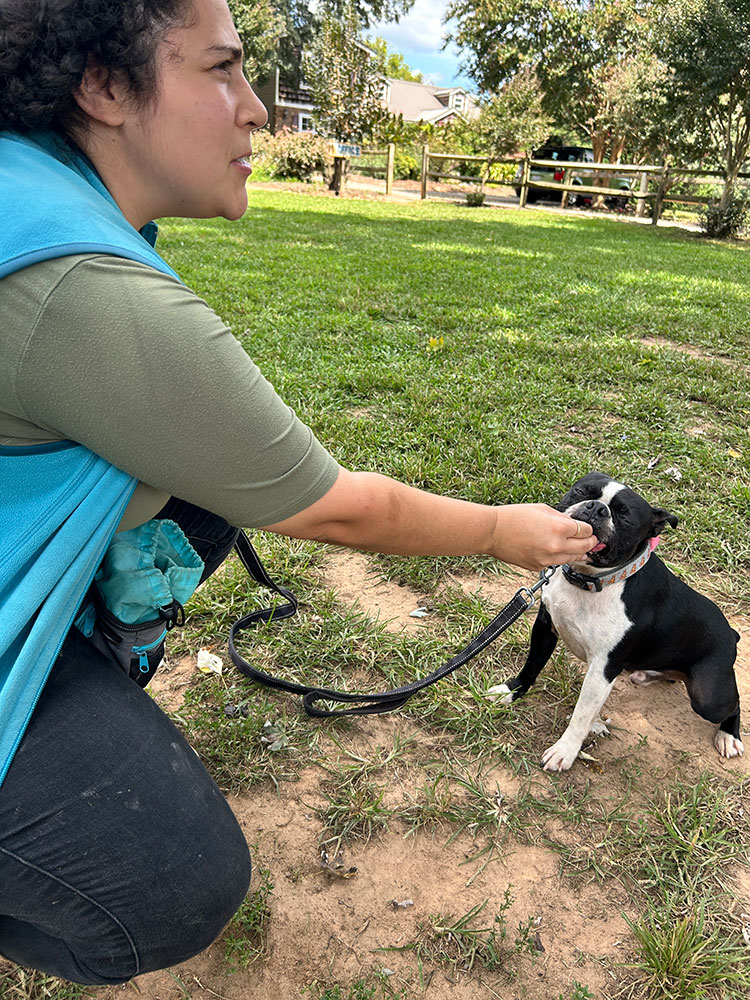
A Lasting Impact
Highland Canine’s presence during Hurricane Helene was more than a gesture—it was a lifeline. Their work reminded us that emotional recovery is just as vital as physical rebuilding. As communities continue to heal, the paw prints left behind by these service dogs mark a path toward resilience, compassion, and hope.
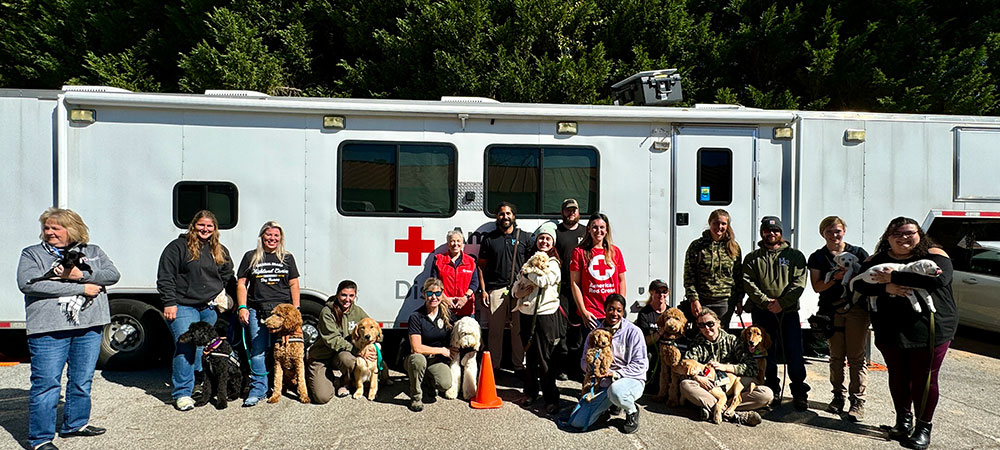
Support all the urgent humanitarian needs of the American Red Cross.
Find a drive and schedule a blood donation appointment today.
Your time and talent can make a real difference in people’s lives. Discover the role that's right for you and join us today!